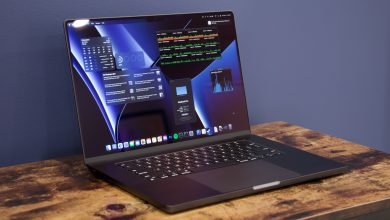Choosing the Perfect Gaming Screen: A Complete Guide for 2023

A quality gaming screen does more than display your game—it immerses you in the action, enhances your focus, and can even give you a competitive edge. From fluid motion to realistic colors, advanced gaming screens are built to elevate your experience. But how do you pick the one that suits your playstyle and setup? Here’s everything you need to know.
Key Features to Look for in a Gaming Screen
To get the most out of your gaming screen, there are several essential features to consider. Each component plays a significant role in shaping your gaming experience.
Refresh Rate and Response Time
When playing fast-paced games, smooth gameplay is everything. Refresh rate, measured in hertz (Hz), determines how many times your screen refreshes per second. A higher refresh rate, like 144Hz or 240Hz, allows for seamless motion with minimal blurring.
Equally important is response time, which measures how quickly pixels transition between colors. Speeds of 1 ms or less are ideal, especially for competitive shooters or racing games where every millisecond counts.
Resolution and Screen Size
The balance between resolution and screen size impacts clarity and immersion. 4K UHD (3840×2160) is a popular option for breathtaking visuals, but it pairs best with larger screens, typically 27 inches or more. Meanwhile, Full HD (1920×1080) remains a solid choice for smaller setups or gamers with budget hardware.
For an ideal setup, match the resolution to your PC’s capability. A mid-tier GPU won’t handle 4K gaming as effectively as 1080p or 1440p.
Panel Types (IPS, TN, VA)
Your screen’s panel type determines image quality and viewing angles:
- IPS (In-Plane Switching): Crisp colors and wide viewing angles, perfect for story-driven or visually rich games.
- TN (Twisted Nematic): Fast response times but often lacks color depth. Good for competitive gaming.
- VA (Vertical Alignment): Exceptional contrast, great for dark or atmospheric games, though not as fast as TN.
Adaptive Sync Technology (G-Sync vs FreeSync)
Tearing graphics can ruin your session. Adaptive-sync technologies eliminate this issue by syncing your screen’s refresh rate with your GPU.
- G-Sync (Nvidia): Premium option for Nvidia GPU users.
- FreeSync (AMD): Budget-friendly and widely compatible.
Both options enhance performance, but choose based on your current GPU.
Connectivity Options
Make sure your screen offers the right ports for your system. Modern gaming monitors usually feature HDMI, DisplayPort, and sometimes USB-C for flexibility. Console gamers should look for HDMI 2.1 for smoother graphics on PS5 or Xbox Series X.

Photo by Yan Krukau
Benefits of High-Performance Gaming Screens
Investing in a gaming screen isn’t just about eye candy—it’s about performance. Here’s how the right screen enhances the gaming experience.
Improved Visual Quality
High-performance gaming screens deliver vibrant colors, deep contrast, and sharp details that breathe life into every scene. Games like Cyberpunk 2077 or Red Dead Redemption 2 truly come alive with a detailed display that can handle dynamic lighting and textures.
Reduced Input Lag
For competitive gamers, low input lag makes a difference between victory and defeat. Reduced lag means the screen reflects your actions almost instantly, ensuring precise aiming and smoother control during tense matches.
Immersive Gaming with Ultrawide Screens
Ultrawide monitors have gained traction among those who crave immersion. With a 21:9 aspect ratio, these screens widen your field of view, making open-world explorations or strategy titles even more engaging. Though not for everyone, they’re a unique option for serious gamers.
Top Gaming Screen Recommendations for 2023
Based on budget, use-case, and performance, here are some standout gaming monitors for this year.
Best Screens for Casual Gamers
For occasional players, affordability is key:
- Acer Nitro VG240Y: A budget-friendly 1080p option with a 75Hz refresh rate.
- ASUS TUF Gaming VG289Q: Affordable 4K entry-level monitor with FreeSync.
High-End Screens for Competitive Gamers
Need professional-level hardware? Consider:
- Alienware AW2524H: A blazing 500Hz refresh rate for absolute smoothness.
- Samsung Odyssey Neo G9: Dual QHD ultrawide gaming beast with Mini-LED technology for stunning visuals.
Gaming Screens for Console Players
Console gamers should optimize for HDMI 2.1 support:
- LG C2 OLED: Incredible HDR performance and a 120Hz refresh rate for PS5 or Xbox users.
- Sony Inzone M9: Designed with console compatibility in mind, great for 4K.
How to Choose the Right Screen for Your Needs
Choosing the right screen boils down to budget, setup, and priorities. Here’s a step-by-step guide to help you decide.
Assessing Your Budget
How much are you ready to spend? If your budget is tight, prioritize features like resolution or refresh rate over luxury upgrades like RGB lighting.
Understanding Your Gaming Setup
Think about your environment. Do you have a big desk for a full-sized monitor? Or does a compact screen better suit your space? Also, check your hardware—4K screens are wasted without a GPU capable of running games at that resolution.
Prioritizing Features Based on Game Types
Different genres benefit from specific features:
- Fast Refresh Rates: FPS and racing games.
- High Resolution: RPGs, open-world, and cinematic titles.
- True Colors: For games heavy on graphics, like Ori and the Will of the Wisps.
Conclusion
A great gaming screen transforms how you interact with your favorite titles. Whether you’re a competitive player needing ultra-low lag or a casual player after gorgeous visuals, the right monitor changes everything. Take your time comparing features, checking compatibility, and aligning your purchase with your gaming habits. Your ideal screen is out there, waiting to unlock your next unforgettable moment in gaming.

